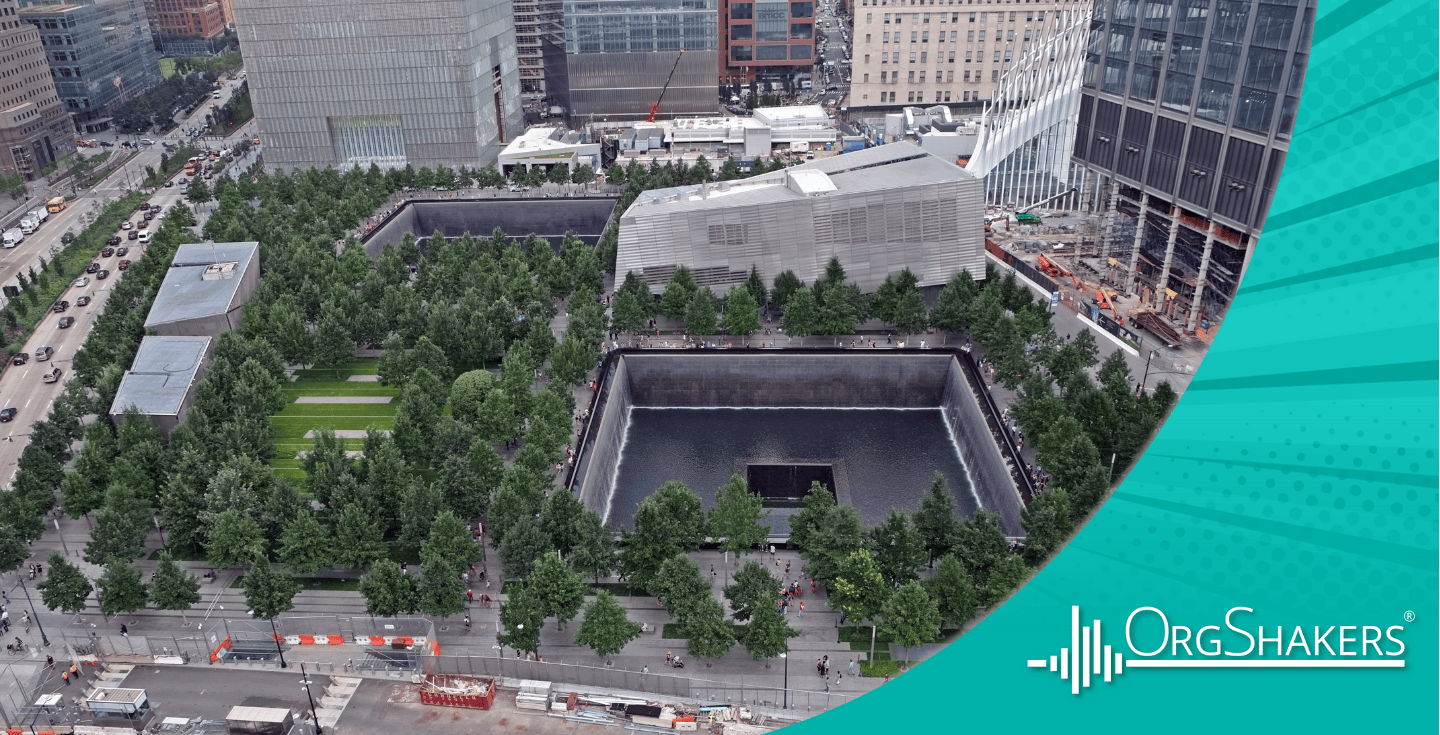Menu

Remembering 9/11: Building Resillience & Community in the Workplace
September 11th, 2001, remains one of the most defining and devastating days in modern history.
As we mark another anniversary, we pause to remember the lives lost, the families forever changed, and the extraordinary courage of those who responded in the face of tragedy.
For many, the memory of 9/11 is deeply personal. Yet even for those who were not directly impacted, the day reshaped the way we think about safety, resilience, and community – in society, and in the workplace.
The Human Side of Crisis
In the aftermath of 9/11, workplaces became more than just offices.
They became places of refuge, solidarity, and healing. Colleagues supported one another through shock and grief, proving that compassion and connection are just as vital to an organisation as strategy or process.
For HR professionals, this is a reminder of the responsibility to nurture cultures that protect not just productivity, but people. Crises, whether global or personal, test our workplaces. How we prepare and respond makes all the difference.
What Employers Can Learn & Promote
1. Prioritise Safety and Preparedness
The events of 9/11 led to a renewed focus on critical emergency response planning. Today, organisations must go further – ensuring safety and disaster policies are not just documents, but lived practices that employees understand and trust are there in case of severe extreme disasters.
2. Support Mental Health in Times of Trauma
The long-term mental health impact of 9/11 is well documented. Post-traumatic stress, anxiety, and grief were widespread. Employers now have a clearer responsibility to provide access to mental health support, destigmatise conversations, and build frameworks that enable people to seek help early.
3. Strengthen Community and Connection
One of the most enduring legacies of 9/11 is the sense of unity that followed. For organisations, this highlights the power of community at work. Encouraging strong connections among employees creates resilience that can carry teams through even the hardest times.
4. Remove Workplace Discrimination and Bias
After 9/11, many individuals and communities experienced discrimination and bias. This painful reality underlines the importance of discrimination/hateful speech policies today. Respecting and valuing difference is not only morally essential, it builds trust and cohesion within teams.
5. Balance Security with Humanity
While security measures became a priority after 9/11, employers also learned the importance of balance. Protecting people is vital, but so is ensuring that security practices do not erode trust or create unnecessary fear is just as important.
It’s important on today’s reflection to remember we are all “human” and as human resources teams, we should ensure that we empower a workplace with community, connection, security and safety that allows us to come together in light of difficult times.
A Legacy of Resilience
Twenty-four years on, 9/11 remains a solemn reminder of loss – but also a testament to resilience, solidarity, and the human spirit. For HR leaders, it calls us to ask: how do we prepare our organisations not only to withstand crises, but to care for people through them?
By focusing on safety, wellbeing, inclusion, and community, employers can build workplaces that honour the legacy of resilience shown in the aftermath of 9/11. In doing so, we not only remember the past, but we also create cultures strong enough to face the future.
If you’d like to read more articles, on various areas covered within this article, you can visit our full blog.



